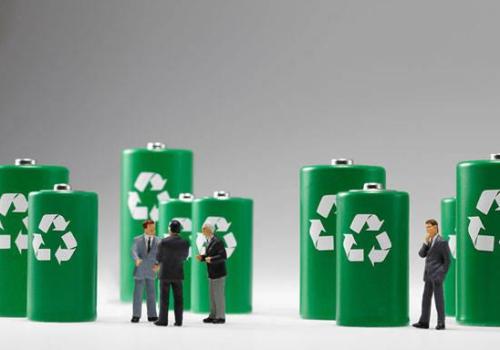Power battery recycling will be traceable to source management from August 1

On July 3, the official website of the Ministry of Industry and Information Technology issued a notice stating that the requirements of the “Provisional Measures for the Extension of Producer Responsibility System†and the “Interim Measures for the Management of Recycling and Utilization of New Energy Vehicles' Power Battery†were continuation, and the Ministry of Industry and Information Technology issued the “Source Management of Recycling and Utilization of New Energy Vehicles' Power Batteryâ€. The Interim Provisions (hereinafter referred to as the “Administrative Measuresâ€) collects information on the whole process of production, sales, use, scrapping, recycling, and utilization of power batteries, and monitors the responsibility of each link entity in fulfilling recycling responsibility. It will be implemented as of August 1 this year.
The "Administrative Measures" clarify that automobile production, scrap car recycling and comprehensive utilization enterprises should upload traceability information on the traceability management platform. Specifically, the automobile production enterprise shall upload information within 15 working days after the issuance of the domestic new energy vehicle ex-factory certificate; the recycling service outlet shall submit the information to the automobile production enterprise after the recycling of the used power battery, and the automobile production The enterprise shall upload the information within 30 working days after the used power battery is returned to the income bank and handed over to the warehouse; the scrapped car recycling and dismantling enterprise shall receive the scrapped new energy vehicle and issue the “Retired Automobile Recycling Certificate†within 15 working days. Upload information.
It is reported that waste power batteries not only have the possibility of causing heavy metal pollution, but also have strong corrosiveness and toxicity of electrolytes, which are prone to produce toxic chemical gases and endanger human health. To this end, in the recycling and utilization of power batteries, China has continuously improved the relevant systems. At the beginning of last year, the General Office of the State Council issued the "Proposal for the Implementation of the Extended Producer Responsibility System", proposing that electric vehicle and power battery manufacturers should be responsible for establishing a waste recycling network; in late February of this year, seven ministries including the Ministry of Industry, Information Technology and the Ministry of Environmental Protection jointly issued The Interim Measures for the Management of Recycling and Utilization of New Energy Vehicles' Power Battery will guide the cooperation of industry, academia and research, encourage the use of cascades and recycling, and promote the innovation of power battery recycling and utilization mode.
According to the prediction of the China Automotive Technology and Research Center, the life of the power battery is generally 5-8 years, which means that the new energy battery that was put into the market in the early stage is basically at the critical point of elimination. From 2018 to 2020, the cumulative number of scrapped power batteries in the country will reach 120,000-200,000 tons; by 2025, the annual output of power batteries will reach 350,000 tons.
In view of the above situation, the recycling of power batteries is the only way. It is understood that the power battery retired from new energy vehicles still has more than 70% energy residue. After being selected and tested, it can be further applied in energy storage, distributed photovoltaic power generation, household electricity, low-speed electric vehicles and many other fields. , reflecting a huge reuse value. Moreover, it can be further scrapped later, and metals such as cobalt, nickel, manganese, lithium, iron and aluminum can be extracted from used batteries.
Lin Boqiang, dean of the China Energy Policy Research Institute of Xiamen University, said that at present, many of the new energy vehicles in China have not entered the formal channels, and the power battery recycling market lacks standardized management. The "Management Measures" introduced this time will build a dynamic integrated management platform in the future, and implement information management and control over the whole process of recycling and utilization of power batteries. Accordingly, the specific responsible persons will be clarified, and the recycling of power batteries will be To promote.
"But the recycling process of power batteries has also increased the cost burden of enterprises to a certain extent, and the enthusiasm of enterprises for recycling is not high." Lin Boqiang said that the recycling of new energy vehicles in China is just beginning, the relevant technology and configuration are not enough. Mature, there is no large-scale recycling and reuse market model, resulting in high overall costs. Moreover, after the company is recycled, it is limited by technical means and the rate of return is not high, which further increases the cost burden of the enterprise.
Hollow Shaft Hybrid Stepper Motor
Hollow Shaft Stepper Motor,Stepper Servo Motor,High Torque Stepper Motor,4 Phase Stepper Motor
Changzhou Hebe Interantional Trade Co., Ltd , https://www.hebe-motion.com